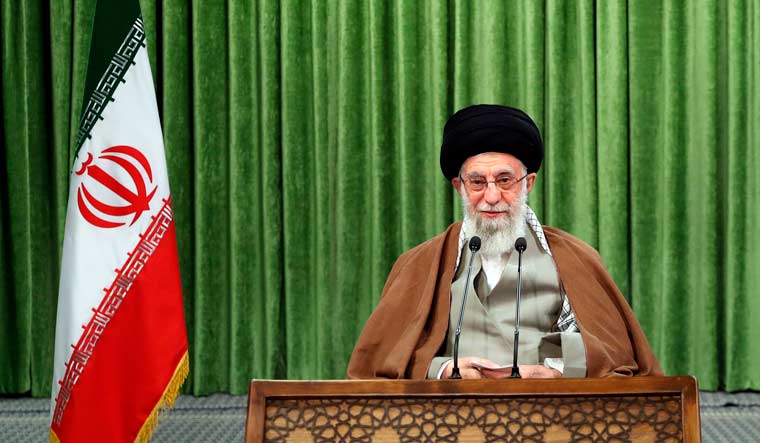The results of the presidential elections in Iran, even before the votes are counted, are more or less likely to be a given: a hardline conservative government. Ebrahim Raisi, the Iranian judiciary chief, a hardliner and close to Ayatollah Khamenei is believed to be the frontrunner, according to opinion polls. The answer to what lies ahead for Iran, however, may not be determined by the vote on Friday, but the outcome of intense negotiations on the nuclear agreement in Vienna.
The indirect talks between Iran and the US to revive the nuclear agreement are believed to be close to the finish line. The chief coordinator—European Union foreign policy official Enrique Mora—is shuttling between two luxury hotels between the US delegation as the Iranians have refused face to face negotiations. “We achieved good, tangible progress on the different issues... we are closer than ever to an agreement, but there are still essential issues under negotiations,” Iranian Deputy Foreign Minister Abbas Araqchi was quoted by news agencies. The sixth round of negotiations began last week.
India will be watching the results of the negotiations carefully and will be hoping for, like the Iranians, a lifting of sanctions. The Iranian economy has been crippled by the economic sanctions. The pandemic has only added to the economic crisis. It is estimated that there have been more than 80,000 deaths in the country. For Chabahar—India's biggest project in Iran—to succeed, the revival of the economy is vital.
For the port to become an asset or to fulfil the ambitious plans, trade is essential. And trade is impossible without the sanctions being eased. A budget worth Rs 100 crore—the same as last year—has been allocated to Chabahar Port to demonstrate India's commitment. Despite the economic waiver for Chabahar by America, India found it difficult to push the project ahead as it took extraordinarily long for the US Treasury to clear the imports of heavy equipment needed for the project. And for India to cement its ties with Afghanistan—even after the US troops' withdrawal—it is essential to have the connectivity that Chabahar promises.
also read
- What is the importance of Isfahan? A look at erstwhile Safavid capital amid alleged Israeli attack
- The Israeli attack that wasn't: The danger of rumours sparking off nuclear war is real
- 'No missile attack in Isfahan': Iran says blasts caused by activated air defence systems
- Middle East crisis: European allies urge Israel to show restraint after Iran’s air strike
The tensions between India and Iran over the railway line connecting the port sprung from India's inability to find a way out of the US dilemma. With President Joe Biden pushing for an Iran deal, India will be hoping for a US administration more willing to understand its complicated relationship with Iran. That will be determined by the envoys in a luxury hotel in Vienna.
While the envoys have made it clear the results of the elections will not impact the negotiations, who will lead the government will certainly matter. The choice is between shades of hard-line politics. The three other candidates are Adolnasser Hemmat, former governor of the Iran's Central Bank and a moderate who is still in the race; Mohsen Rezai, another hardliner candidate and secretary of the Expediency Council who advises the Supreme Leader; and the youngest—Amirhossein Qazizadeh Hashemi, a 50-year-old doctor. Hashemi, too, is in favour of hardline politics.
If Raisi does win—polls suggest that he leads at 64 per cent—relationship with America will be more stressed. There have been human rights concerns in his role in the 1980s with the Iranian Revolutionary Guards. A government under him will certainly be more conservative and will have greater curbs on women. His hardline stance will certainly spill over to his relations in West Asia.





